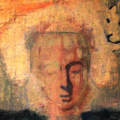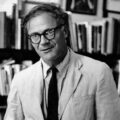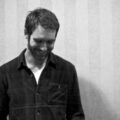The independent seat: on Judith Barrington’s The Conversation

An “independent seat” is a rarely achieved height of equestrian skill, in which mechanical command and response are transformed into a fluid conversation between the bodies of horse and rider. It is a kind of attunement that can be accomplished only through the bodily memory that long practice creates.
A rider and a writer for most of her life, Judith Barrington exhibits such a level of skill in her latest collection of poetry, The Conversation. With the urgency and clarity engendered by a recent brush with death, the book traverses the varied terrains of the poet’s life. Beneath the individual conversations, which constitute the more overt subjects of these poems, is the meta-conversation within and between them, subtle and responsive as the communications between the accomplished rider and her mount.

The Conversation
by Judith Barrington
$21.00, Softcover
Salmon Poetry, 2015
The collection is divided into three parts, each of which loosely represents the poet’s significant geographies. The first section, “My World,” locates the reader at the intersection of the domestic and public. The opening image of the section, “Tumbled like tumbleweeds, barbed wire / rolled across the top of the beach,” establishes Barrington’s earliest landscape—World War II–era Brighton, England—as one marked both by death and a sense of prohibition, just as the later statement, “Obedience equals life / in forty-four” infers its real and possibly fatal consequences of transgression. Though the poem closes with the end-stopped declarative lines, “This is my world. / I have to learn to love it,” they are conspicuously set off to the right, against half-lines of empty space, as if to embody utterance against the silence of the dead, acceptance against resistance.
Those lines lead brilliantly into the title poem, “The Conversation,” which Thomas McCarthy selected as the winner of the Gregory O’Donoghue International Poetry Competition. Here, the speaker negotiates her way between the desire for the conversation that might bring, if not resolution, then at least a better understanding between the living and the dead, and her stolid belief that “the end is the end.” But even as this poem embraces death’s intransigent boundaries, it resists them as well, alternating between the views of bereaved and deceased. Barrington elegantly picks her way through a nuanced dialogic whose overt stance is undercut by the fact of its own imaginative act.
Her decision to leave the actual content of the conversation unspecified is another example of Barrington’s skillful touch. A less experienced poet might have felt compelled to pin it down, to direct meaning along a narrower, more personal path. But here, her looser rein requires the reader engage the poem directly, by furnishing material about the speaker’s, or her own, unfinished business with the dead. It also allows the subsequent poems to range unimpeded, so that The Conversation, as the collection’s title gathers a rich multivalence.
Many of these poems engage with the larger literary tradition. Interestingly, Barrington tends to reference male writers by name, quoting their material, while the work of key women writers remains unnamed. It is as if these women’s voices have become such a naturalized part of Barrington’s sensibility—and that of her assumed reader—that she feels no need to allude to them. For instance, she makes no overt mention of Elizabeth Bishop’s poem, “The Fish,” though its echo is clearly audible in “What Kind of Creature,” which executes a reversal of image and meaning.
A central figure in the book is Barrington’s own father. “Inscrutable” explores their relationship. The stanza that indicts her father’s superficiality—“Death’s no excuse for life on a train / or a series of boats; for a library book / known only by the color of its cover, no title”—is followed by a stanza in which Barrington interrogates herself. “Is it worse that I find no excuse for myself?” she asks. “I share with him those same fifty years / and can hardly claim to have spoken new words.” But it is in “The Engineer” that her father’s inscrutability becomes most poignant, and its significance to Barrington, and to the collection, becomes most clear. The poem draws a portrait of a man whose earnest performance of fatherly duty limits how he, and by extension his family, relates to the larger world:
My father kept charts, marked journeys on Michelin maps,
crayoned color columns of various heights
on the graph paper he taped to the garage wall.Oil changes, spark plugs, tire rotations, but no
stories to match the maintenance: no reminiscing
about roads whose hairpin bends were ribbonslooped around the flanks of Swiss mountains,
their furious drop-offs waiting to be fed
by careless cars—never ours of course.Spark plug gaps were recorded in decimal points
and dark blue Parker Quink that faded over time
like old-fashioned ledgers, the credits and debitsof family vacations never discussed, not even when
his fourteen-month-old Vauxhall skidded to a stop
beside the French road so I could throw up myprix-fix three course dejeuner, and later on, the French
snack my mother thought would settle my stomach.
His stories were wordless: documents, photographs,and 8 millimeter movies that jumped and trembled
as he shot scene after scene through the windshield
on a rutted road, never turning his lens to the sidewhere big white cows were as foreign as
the routier where I stopped for lunch
and yet again I vomited into a ditch.
By the poem’s closing questions, “…what went on inside his head / when he looked at the façade of Chartres Cathedral— / Load bearing? Acid rain on stone?” the difference between the way father and daughter each apprehends the world has been established by the poet’s capacity to make music of his mechanistic orientation.
The poem revs with the rhythm of the lists in the first three stanzas, before the rubber hits the road in the fourth, and the sentence lengths expand, gather velocity until the end-stopped line in the middle of the sixth stanza taps the brakes. The next sentence builds momentum before it comes to an abrupt stop at the end of the eighth, when the speaker vomits into the line’s monosyllabic last word, ditch. It functions so much like a high-performance engine, with all its parts working beautifully together (not unlike the collection itself), that despite the negative effects of the father’s slavish attention to structure, it is clear that Barrington has successfully internalized its gifts.
Nevertheless, when the speaker utters the final statement—“He never said”—its flat, hard, emotional truth not only serves to close the poem, but the end of this line of probing as well. She seems to push off of the statement as if it were a platform from which she has determined to plunge deep, and to say.
The second section, “The Book of the Ocean,” depicts the unconscious, whose mysterious depths contain the elementals necessary for authentic self-becoming, for a life deeply engaged in being and in art. It immediately subverts what “My World” had raised up. Barrington trades in driving over for diving into, a move that shifts value from breadth to depth, while its imagery simultaneously evokes the physical sea in which her parents both drowned, as well as the subconscious. Its title poem declares:
The book of the ocean is the greatest
and the most neglected. It floats in shadows
under rock shelves; it laps at the edges
of dreams—a reminder of the deep darkinto which we dive nightly, a reminder
of the moon that hauls us and hurls us
on the brink of wrinkled lands where once
we staggered ashore, trying to become human.
What felt like a resistance in Part One becomes open transgression, transvaluation, and transformation as Barrington submerges into this lyrical space. She encounters and engages with what her inherited world would surely have designated abject (think Julia Kristeva’s The Powers of Horror): the dead bodies of her parents, the octopus that is a stand-in for her own inscrutable shadow self, the feminine/lesbian body and its fluids, grief and her own death. Rather than see them as objects of horror, she recognizes them as vital constituents of that dark and protean world below the surface from which language, identity, art, and life itself derive their power, resonance, and profundity.
“The Musician’s Seamounts” beautifully embodies the reversal of the symbolic order in the figure of a submerged mountain range (each mountain named for a famous Classical composer), where, rather than climbing higher, read: subliming, the quest is to to descend to the place where the earth itself is humming “cantabile / through an ancient, cracked, tectonic throat.” The shift re-sacralizes the natural world, dissolves the boundary between human and nature.
Hovering in the liminal space between life and death, “Night Dive” signals this dissolution as well. Its speaker enters an oceanic soundscape, full of both noise and profound silence, theoretical and literary allusion—not the least of which is Adrienne Rich’s “Diving Into the Wreck.” There, Barrington begins to register “the music / of all those who drum on the walls of swim bladders— // all who like crickets saw and scrape / in pleasing discord, like an orchestra tuning up” not in her ears, but in the flesh of her body. “She can feel them vibrate, as if she’d acquired / a fish’s lateral line along her flank / to pick up messages winding through the brine.” The gradual, literal and figurative reclamation of the body in “The Book of the Ocean” foreshadows the stance Barrington will take when she rises toward “not who she was, but who she will become”
Barrington gives voice to the body in the opening poem of the final section, which inhabits the ecosystem of her consciously chosen life: the identity, relationships, feminism, and art she has cultivated on American soil. “When Did It Start” asks when the body’s “conversation / with the world, so different / from conversations made with words” began. Her final stanza answers: “The words say: this will pass. / The body says: Listen. / Words say: tomorrow. The body says: Now.”
A sense of urgency and heightened awareness rises from the physicality of this poem and of those that follow. Barrington wisely balances that earnestness with wit, delightfully conflating her lover’s long legs with their enduring relationship in “Long Love,” a good-natured riff on Rumi in “The Wound,” and a description of grave-shopping that parodies house-hunting in “Shopping for Death.” But it’s her penultimate poem, “Not a Credo,” which most powerfully informs the collection’s conversation.
Anti-religious (or at least skeptical) from its title onward, ”Not a Credo” questions the human need for and consequences of religion. The poet lies on a beach—a natural environment inhabited by human and non-human, domesticated and wild, animal alike. In the first section she asserts, “They so diminish this / who call it god—or even god’s best work.” In the next, she continues with an interrogation of the need to “conjure a deity from forests / where stands of trees / are trunk and branch and leaf— / not cathedrals made of heavy stone.”
One of those who dares to reject “the rules, the threats,” the “hundred distractions from death,” “the tricks / pulled off by the wizard in his cloak, / the priest in his gown, rabbi, imam, pious clown,” Barrington confers onto the physical world a sense of intrinsic sacredness. She rejects the religiosity that has, for so long, been the source of its subjugation and degradation. This rejection—especially after the brain injury that brought her minutes away from death—lends a powerful authority to her stance. It creates a sense of intimacy between the body of the poet and the world she portrays that feels earned, authentic, and utterly necessary.
The Conversation is, ultimately, both brave and generous. By enacting her own dialogue between memory, the unconscious, and the body in the face of death, Barrington acts as an unflinching and sure-footed guide for those readers who choose to go along for the ride, her attunement becoming our own.
About Cindy Stewart-Rinier
Cindy Stewart-Rinier holds an MFA in Creative Writing from PLU’s Rainier Writing Workshop. Her work has appeared in Calyx, The Smoking Poet, Crab Creek Review, Ascent, Naugatuck River Review, VoiceCatcher, Womens Voices for Change, New American Voices, and the forthcoming anthology Siblings: Our First Macrocosm. She has served as a guest editor for several issues of VoiceCatcher Journal, and is a poetry writing teacher for and board member of the Mountain Writers Series. She lives in Portland, Oregon.





